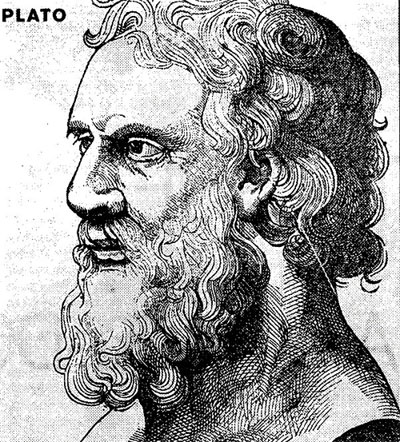Myths 'silly' in ancient Greece about people
Testicular regulation of the voice, eyes that contain light . are human body mistakes that many ancient Greek scientists have proposed.
>>>The truth of myths of myth about the Middle Ages
With limited scientific knowledge, the ancient Greeks tried to delve into aspects of the human body and animals by making many theories. Some theories are correct but most of them are incorrect.
If you look from a modern science perspective, some previous theories will be quite funny, but who expected, it comes from philosophers, doctors or famous thinkers.
1. The eyes contain light
Plato is one of the greatest Greek philosophers of ancient Greece also made many 'false' contributions to medicine, in which the worst idea is probably about the flow of light or fire in the eyes.

Accordingly, this light flow when emitted, touches the object is reflected, then it combines with sunlight to make objects 'can be seen'. The color of the object is said to be 'light spots' that escape from the object itself.

This concept was popularized until the eleventh century, when Persian scientist Ibn al-Haytham developed a different theory - thinking that the eye was only an 'optical instrument ' in the body. people. To see an object needing light on the object, then reflect it back to the eye, this allows the 'eyes to see things'.
2. Veins transport blood, arteries transport air
The Greek physicist - Praxagoras lost is a great loss to mankind because he was probably the first to recognize the difference between veins and arteries.

However, Praxagoras believes that air is transmitted through arteries. The reason he came up with this concept was because he realized that the blood of the dead would no longer appear in arteries but concentrated in the vein.

In addition, he explained that the body bleeds when an open wound is caused by arteries that suck blood from surrounding tissues when exposed to air. This concept was believed to be hundreds of years later, when humans discovered the fact that they both transport blood, only the vein transports blood to the heart, taking oxygen after it travels through the arteries. body.
3. Sleep until blood flows all over the body surface
The Greek philosopher, also known as the famous Alcmaeon of Croton, who holds many of the 'firsts' of medicine has given the idea: the brain is the place to control the body instead of the heart as much who mistook in the V century BC.

However, he is not always right. Alcmaeon believes that sleep comes when human blood comes out of the body's surface (escaping from the blood vessels under the skin), to further vascular areas. He also said that when all the blood in the human body gathered at a point for too long, that person would die.
Alcameon's point arises from the fact that ' people sleep' - the amount of circulating blood is thought to leave the blood vessels on the surface of the body. But the next generation, or even the successor thinkers, rejected this idea because they said that people can 'stand up' .
4. The brain is just a cooling device
Aristotle was a famous philosopher, Greek scholar and ancient teacher of Alexander the Great. However, he did not make any mistake. One of Aristotle's misconceptions is that 'the heart is the center of knowledge, the source of all senses'.

He even set up another theory for the brain, which is a 'cooling device' when the heart works overburdened, and where the soul rests. Although the predecessors, including Alcmaeon and Plato - the teacher of Aristotle - gave a model of research on the central nervous system of humans, Aristotle laughed at them. In addition, he said that women's brains are smaller than men, a big mistake that lasts for many years to come.
5. Testicular voice regulation
Unsurprisingly, Aristotle reappeared, because his ideas influenced humanity for thousands of years after all. This time, he said, testicles are the determining factor of a person's voice.
He explained that boys' voices tend to be deeper at puberty, when testicles develop (a lot of Aristotle's assumptions are based on animal observations). In addition, a castrated man before puberty will maintain the pre-existing 'craving' voice. But modern science proves that the larynx and the mucous membranes inside regulate our voice.
- Earthquakes buried in ancient Greece?
- Zigzag art in ancient tombs in Greece
- Things you probably don't know about Greece
- Discover two intact ancient tombs in southern Greece
The 'people who give way to the soul' in myths
- 2500-year-old shopping district in Greece
- The destructive power of the most terrifying beast in myths
- 'Unique' inventions of ancient Greece
- Top unexpected facts about ancient Greece
- Discovered the missing island of ancient Greece
- The world's most silly inventions
- Use ingredients in toys to improve li-ion batteries
 'Fine laughs' - Scary and painful torture in ancient times
'Fine laughs' - Scary and painful torture in ancient times The sequence of numbers 142857 of the Egyptian pyramids is known as the strangest number in the world - Why?
The sequence of numbers 142857 of the Egyptian pyramids is known as the strangest number in the world - Why? History of the iron
History of the iron What is alum?
What is alum?